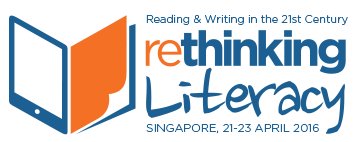Dr. Troy Hicks
Dr. Hicks is a professor of English at Central Michigan University and his work focuses on the teaching of writing, literacy and technology, as well as teacher education and professional development. A former middle school teacher, he collaborates with K–12 colleagues and explores how they implement newer literacies in their classrooms.
Hicks directs CMU’s Chippewa River Writing Project, a site of the National Writing Project, and he frequently conducts professional development workshops related to writing and technology. Also, Hicks is author of the Heinemann titles Crafting Digital Writing (2013) and The Digital Writing Workshop (2009) as well as a co-author of Because Digital Writing Matters(Jossey-Bass, 2010), Create, Compose, Connect! (Routledge/Eye on Education, 2014), and Connected Reading (NCTE, 2015) as well as numerous journal articles and book chapters.
In March 2011, Hicks was honored with CMU’s Provost’s Award for junior faculty who demonstrate outstanding achievement in research and creative activity and, in 2014, he was honored with the Conference on English Education’s Richard A. Meade Award for scholarship in English Education. He can be followed on Twitter @hickstro.
Pre-Conference Workshop
Make. Write. Repeat.
The “maker” movement has taken hold in education, and its core principles reward those who take risks, create, fail, reflect, and start the process anew. In what ways can we connect the ideas of “making” and “writing” to rethink literacy instruction? With examples from a number of teachers and by exploring many digital writing tools, we will discover opportunities for our students to make, write, and continue the process of learning over and over again. Come prepared with a laptop or tablet so you can craft your own pieces of digital writing!
Keynote
Teaching, Revising, and Assessing Digital Writing
Revising words, sentences, and paragraphs presents a challenge to any writer, from novice to expert. When we add in components of digital writing such as images, audio, and video, the task becomes even more complex. In this session, we will explore how looking closely at students’ work can lead us to consider new approaches and opportunities for teaching revision in multimedia environments. Additionally, we will discuss the ways in which the Framework for Success in Postsecondary Writing and the National Writing Project’s Domains for Multimodal Writing Assessment can provide new lenses for teaching, revising, and assessing our students’ digital writing.
Workshop
Post Keynote Conversation
Please bring your questions and ideas from the keynote straight into this follow-up conversation. Here we can discuss some of the digital writing tools in more detail, connect more directly to your classroom practice, and look at more examples of student work. You will help make this session happen, so please come prepared to interact, learn think about how to integrate digital writing into your teaching.


